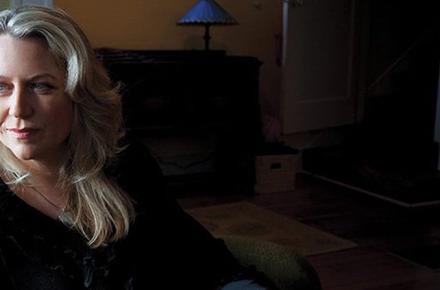Just Start Writing: Scheduling Your Daily Write

With stars in my eyes and a temporary work visa in my hand, I moved to Paris, France, right after college. While I was technically there to get some experience working at an international law firm, I spent the whole flight over the Atlantic making pictures in my mind of sitting in the window of a classic French café on the Seine, pouring my heart out onto the page. A friend had given me a journal with the Eiffel Tower on the front as a graduation present, and I was planning to fill it with all the important, deep, wise thoughts and feelings I had been keeping under wraps for—I determined—far too long. So while my official reason for being in the City of Lights was to intern as a legal translator, my secret raison d’être was to become the writer I deeply wanted to be.
Enter, well, Paris. With all its delights. Chief among them (for the 22-year-old version of myself) being les Camels ooltra light and bad table wine. Not to mention the fact that I was working 10-hour days at the law firm and trying to survive the hottest summer on record in a city with no A/C in the subway system. In other words: I wrote nothing. When my internship at the law firm petered out and I could not find another gig to replace it, I had to hop a plane back to the US with my writerly tail between my legs.
While your excuses are likely far more virtuous than my own, I imagine you have a personal version of this dilemma. I call it a case of the “buts.” The refrain goes something like this: “I want to write every day, but __________________.” (Insert any number of really good excuses: the kids, the job, taking care of your elderly parents, cleaning up after the cat who threw up on the floor in the night. Go crazy here.) I hate to be the bearer of bad news, but the “buts” are here to stay. They don’t go anywhere. There is always a really impressive reason why sitting down at your computer—or with your little Parisian journal—will have to wait while you finish doing everything else. Which is why you are hereby instructed to insert your writing appointments into your calendar. Yes, that calendar. The one that contains all the important things that you have to do.
No longer a ciggy-smoking wine drinker (the mere thought causes me intestinal discomfort), I’m just as good at the “buts” today as I was when I was 22. Only now I’m a busy business owner, with people counting on me to return their emails, make it to Zoom meetings, and pay the bills. It would be super easy for me to avoid writing altogether, citing a list of to-dos whose primacy over writing would easily stand up in a court of law. The good news for me, and probably for you, is that there’s one “but” that’s actually in service of our craft. This is the small, quiet voice that whispers her heartfelt plea: “But … I want to be a writer.” It’s with this voice in my ears that I approach my calendar, blocking out 90 minutes, six mornings a week, for writing.
Putting my writing time in my calendar is truly the only way I get any writing done these days. It’s how the book you’re now reading got written. I keep the first 90 minutes of my workday meeting-free; before 10:30 or 11:00 am, I am to be writing. Other things come up all the time. I see an e-mail in my inbox that would “only take a minute to reply to.” Or I get a voicemail from someone on my team who needs my input before she can move forward with helping a client. It is one of the hardest things in the world to keep my writing boundary, and I’m better at it on some days than on others. But even if I keep the full 90 minutes sacred only four days a week (out of the six I have it scheduled), that still adds up to a whole lot more writing than none.
Contrary to authorial folklore, most books don’t get written during monthlong writing retreats in the woods. Take it from someone who has tried that approach: there’s nothing that makes me want to please God do anything but write more than having several full days in a row set aside to write. I’m not alone in this. I remember one day when my friend Nancy and I were co-working at my kitchen table. We’d booked out the whole day to work side by side: me building in literary arts, and Nancy drafting her book. At some point I looked up to see Nancy standing at the kitchen sink doing the dishes. My dishes. The dishes that had (knowing me) been luxuriating in the sink for a day or two by then. “Nance, why are you doing my dishes?” I asked. She looked up at me as if I’d snapped her out of a trance. “I don’t know!” she exclaimed. “I guess nothing makes you want to do dishes like writing a book!” You may be familiar with this experience. If you want a really clean house, tell yourself that you’re working on your book today.
The truth is that most books don’t get written in heroic hours-long sessions by the sea. Most books get written in small appointments, consistently kept, sprinkled throughout the week. So go to your calendar now. Look at your to-dos and add “writing” to the list. Ask yourself the following clarifying questions:
- What time of day am I most likely to sit down and write?
- What do I usually do in that time period instead of writing?
- What is most likely to keep me from prioritizing writing in that slot?
- How might I head off such objections before they happen?
Find out about Kelly's program at Kripalu, The Book You Were Born to Write.
Excerpted with permission from The Book You Were Born to Write, © 2018 by Kelly Notaras.













































